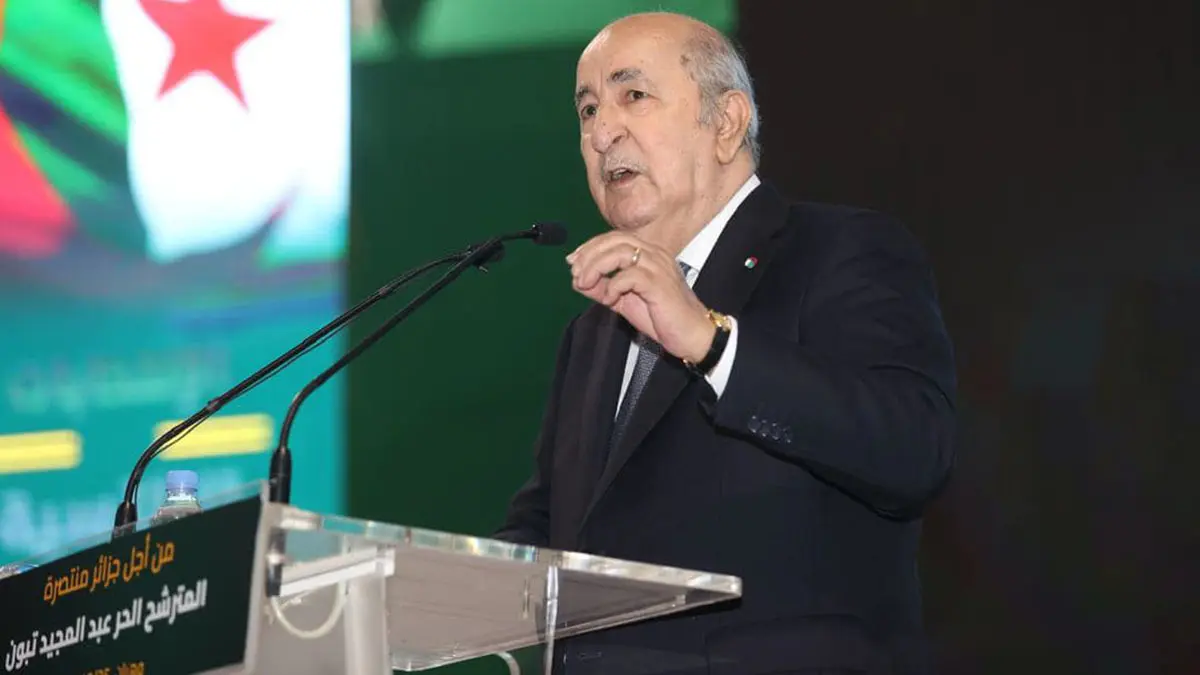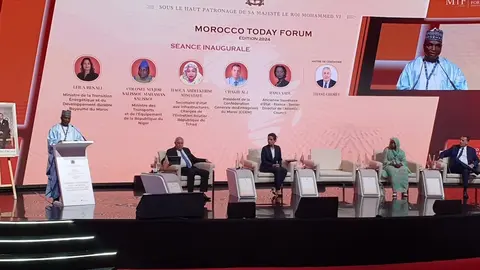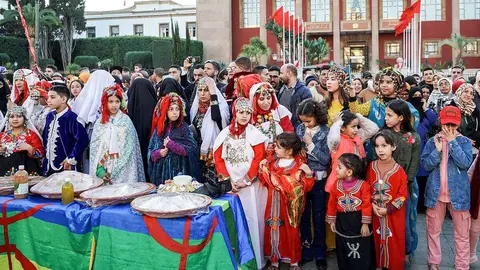How does Algeria continue to block the Maghreb Union and destabilise the European Union?

Excellencies,
I am honoured to inform you that in the previous legislature I had the pleasure to address a relevant correspondence to MEPs, in which I exposed the blockade of the Union of Maghreb States by the Algerian generals and their attempts to destabilise the European Union. This correspondence was sent on 13 March.
Given the crucial importance of this problem and the danger it represents for our region of Tamazgha, i.e. North Africa, as well as for Europe, I wish to draw your attention once again to this threat, in the hope that you will consider the seriousness of the situation, which is considerably damaging the economy of the countries on both sides of the Mediterranean.
It is truly regrettable that Algerian officials, who kept the septuagenarian and mythomaniac Abdelmajid Tebboune in office through an extremely fraudulent presidential election massively boycotted by the Algerian people on 7 September, persist in blocking the reconstruction of the economic union of the Maghreb countries, in total contradiction with the spirit of Algeria's association agreement with the European Union. This agreement, which has been in force for nineteen years, clearly stipulates in its first article: ‘the promotion of Maghreb integration by encouraging trade and cooperation within the Maghreb as a whole and between the Maghreb and the European Community and its Member States’.
The second article of this agreement also states: ‘Respect for democratic principles and fundamental human rights, as set out in the Universal Declaration of Human Rights, inspires the domestic and international policies of the parties and constitutes an essential element of this agreement.’ Algeria consistently violates these principles.
Unfortunately, these Algerian generals, who have seized power since their country's independence, not only continue to violate human rights, but have also declared a diplomatic war against the territorial integrity of their Moroccan neighbour. They have supported and armed the Polisario separatist movement since 1975, have kept the land borders closed for thirty years, as well as the air and sea borders after the severance of diplomatic relations on 24 August 2021, and are now, since 27 September, imposing visas on Moroccan citizens. They are unscrupulously meddling in Morocco's internal affairs and even in those of their own European countries, undermining the notion of ‘full and complete sovereignty of States’ and violating Article 2, paragraph 7 of the United Nations Charter of 26 June 1945.
In fact, these ‘Algerian generals’ have created a new separatist party for terrorist purposes, the ‘Rifian National Party’, in Belgium and France, with branches in Germany, Spain and the Netherlands. They have provided it with a headquarters in the heart of Algiers and a considerable budget. On 14 September, they defied the Belgian (and European) institutions by organising a demonstration in Brussels. The following day, on 15 September, they meticulously orchestrated a large march of young Maghrebi minors towards the border of the city of Ceuta, which the Moroccan authorities managed to stop thanks to an imposing deployment of security forces, images of which went around the world. The failure of this manoeuvre, which aimed to destabilise Spain through these waves of illegal immigration, may well have cost the famous General Djebbar M'henna, head of the secret services, his job. However, this trafficking of migrants, widely promoted and manipulated through social networks under the orders of this general, constitutes a criminal activity that does not respect human life, violating the fundamental rights of people, especially unaccompanied minors, and compromising the objectives of the EU agreement on the management of migration with third countries. Why act like this?
Like a wounded animal, becoming more dangerous and impulsive, General Djebbar M'Henna has intensified his attacks on Morocco, particularly since the decisive recognition of Moroccan sovereignty over Western Sahara by French President Emmanuel Macron at the end of July. Instead of attacking France, this general, directly responsible for the murder of the seven French monks of Tibhirin and head of Algeria's Directorate of Documentation and External Security (DDSE), has preferred to turn his hatred on Morocco and, to a lesser extent, Spain, encouraging waves of migration of desperate young Moroccans, Algerians and Tunisians to its Andalusian and Balearic coasts. In parallel, he ordered supporters of the ‘Rifeño National Party’ to organise the 14 September demonstration in Brussels, while mobilising his electronic militias on social networks to push minors to participate in the big march on 15 September towards the Spanish prisons in northern Morocco...
This obsession with damaging his neighbour and his relations with Spain has only led to his own dismissal, which occurred just four days after the failure of this sinister attempt to invade the Moroccan-Spanish borders by Maghrebi minors!
We want to alert you that the danger persists with the Algerian generals and the so-called ‘Rifian National Party’. Some of their leaders have already openly asked for military training in Algeria and signed, on 14 September in Brussels, a cooperation agreement with the Polisario Front, including in the military field. The official Algerian press covered this event extensively.
Therefore, if the separatist elements of this new party move into terrorist action in the Rif region, already deeply affected by the economic crisis, massive youth unemployment, the repression and imprisonment of the leaders of the ‘Hirak of the Rif’, the consequences of the Covid-19 pandemic and the closure of the commercial borders with Ceuta and Melilla (which are slow to reopen), Spain could face new waves of emigration even larger than those it has experienced in its Canary Islands.
In conclusion, as long as their governments and the European Union do not intervene firmly to put an end to the madness of these Algerian generals, responsible for genocide against their own people and their Amazigh communities, by taking measures such as boycotting the purchase of their natural gas (which indirectly finances their worst enemy, Russia), they will tirelessly continue their evil destabilising manoeuvres, both for Tamazgha and for Europe.
Rachid RAHA,
President of the Amazighe World Assembly
Letter sent to Members of the European Parliament,
Members of the French National Assembly,
Members of the Spanish Congress of Deputies,
Members of the Belgian Federal Parliament



